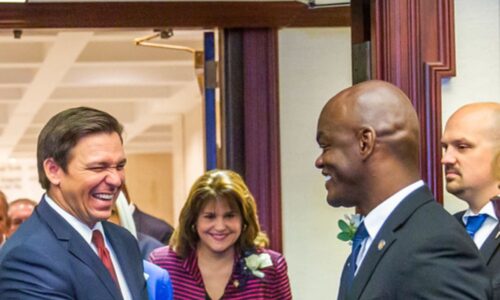Thanks to the terror attacks in Paris on November 13, a U.N.’s proposal to heavily police and monitor the Internet in countries around the world is seriously being considered by Western governments trying to face an onslaught of terror from ISIS.
The terror group has used sites like Telegram, Facebook, and Twitter to recruit new members and to release and promote propaganda, like ISIS’ slickly produced Dabiq magazine.
 |
| Broadband Commission Working Group Photo: ©ITU/M. Jacobson-Gonzalez CC-BY-2.0 |
According to the UN’s proposal, social media sites like Twitter, Facebook and Instagram would be forced to register with the government. They would then be licensed and required to regulate the contents of their platform.
The UN’s proposal could take effect much sooner than anyone realized.
Over the past week, government officials in the United States and Europe have called for more surveillance authority to be able to create “backdoor” access to encrypted data from the big social media companies.
The UN and nervous politicians believe the best way to counter the wave of violent threats online is to heavily police the Internet with unified policies around the world. The UN says social media platforms like Twitter, Facebook, and others should be patrolling every single post.
According to a report on Buzzfeed, Republican Rep. Joe Barton has already asked the FCC to grant power to federal law agencies to be able to shut down websites like Twitter and Facebook, which host content posted by ISIS and other extremists.
His request was shot down, but the concept of government agencies officially watching the net is gaining support at the highest levels.
CIA Director John Brennan was blunt about the matter during a speech delivered at the Center for Strategic & International Studies Global Security Forum on November 16.
“When people become disillusioned with the powers that be, social media enable them to more quickly and easily form associations that defy the status quo. And in part, that is why the global landscape has been changing at a faster, more disruptive pace,” said CIA director John Brennan. “To deal with those risks and challenges, reactive strategies are insufficient. There has to be systematic learning, informed by constant information sharing so that one organization’s detection becomes another’s prevention.”
Ethan Berkowitz is a senior at the College of Industrial and Labor Relations at Cornell. He offered up some insight into the delicate balance that will be needed to pass laws to satisfy the need for security while respecting the privacy rights afforded to American’s under the Constitution.
“I believe it’s imperative that the government, along with European governments and tech companies in Silicon Valley and around the world, must collectively find some middle ground to keep us safe while maintaining our right to privacy as best as possible,” Ethan Berkowitz said. “To have these sides defy each other with laws or software updates, rather than identify a solution, is a loss for everybody.
 |
| Edward Snowden |
Edward Snowden offered up a very useful list of tips and apps to encrypt your data in a report by The Intercept, which will surely piss off John Brennan again.
It’s handy not just because of the government’s prying eyes, but because anyone could steal your information.
According to Edward Snowden, taking these steps will help you cover your ass if someone is watching, or gets a hold of your phone or computer.
TIPS FROM EDWARD SNOWDEN
1. Encrypt your phone calls and text messages. Snowden suggests the free app Signal, by Open Whisper Systems.
2. Encrypt the hard disk on your computer in case its stolen by an “adversary.” The thief could piece together all kinds of personal info in your computer to gain access personal information that could be used against you.
3. Use a password protector like the free app KeePassX, which creates encrypted unique passwords for all your social media accounts.
4. Enable two-step authentication on your accounts that offer the service. After you enter your password, you must also confirm a second piece of information, usually sent as a text message to a device.




